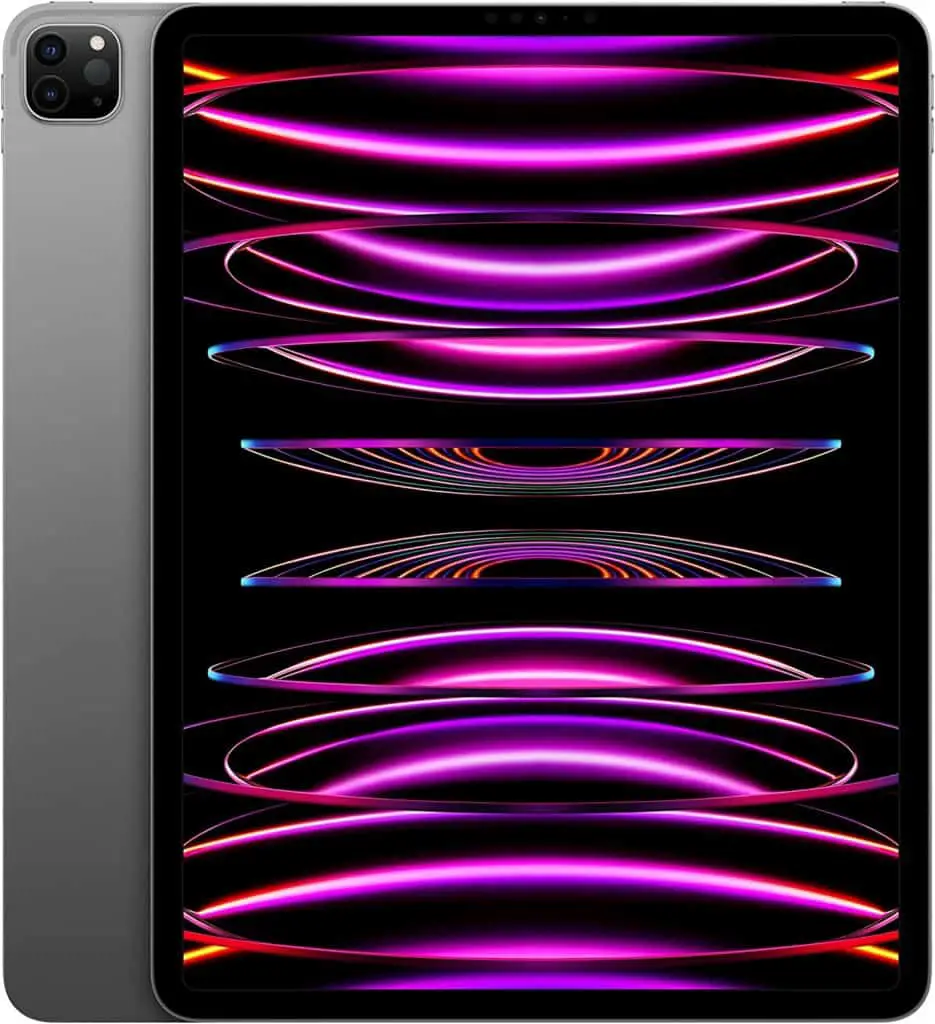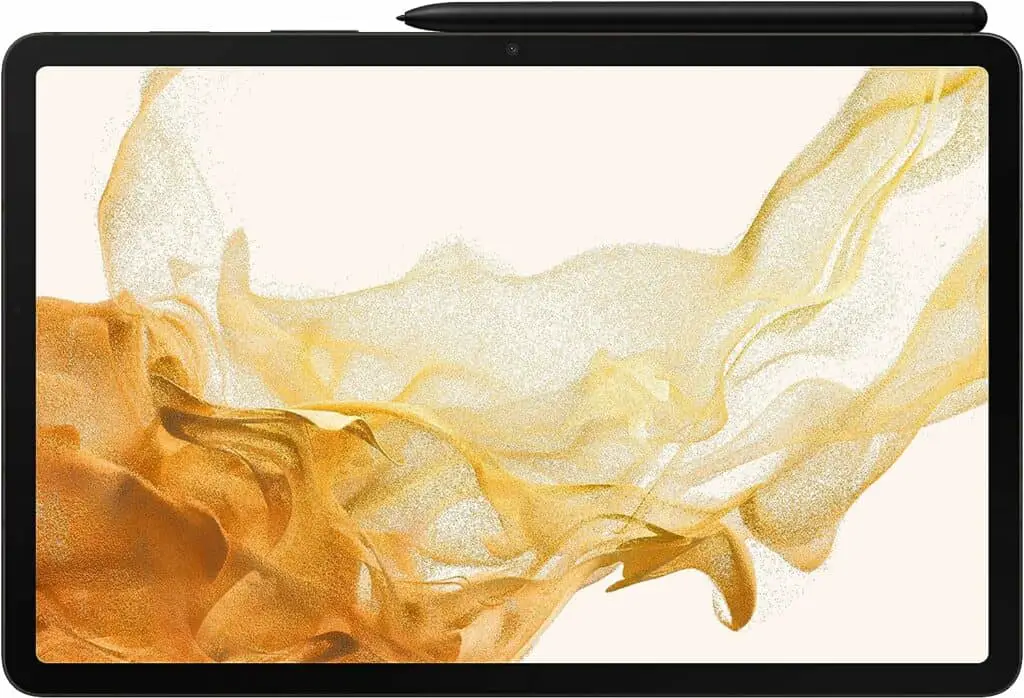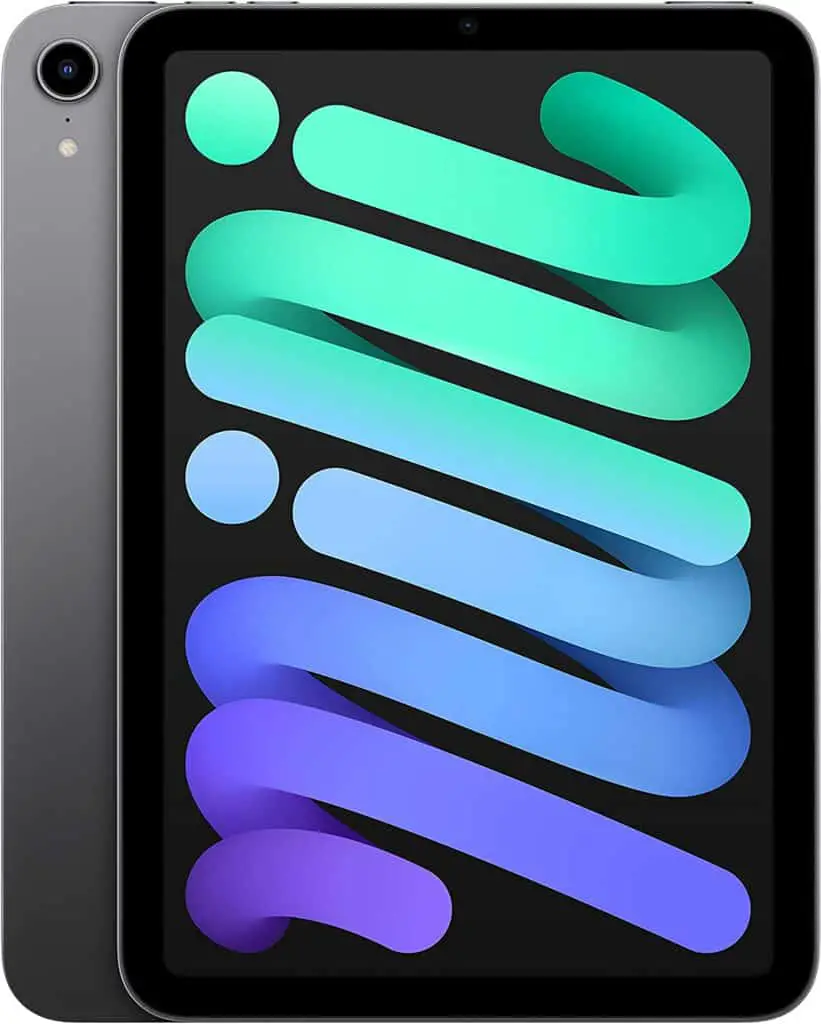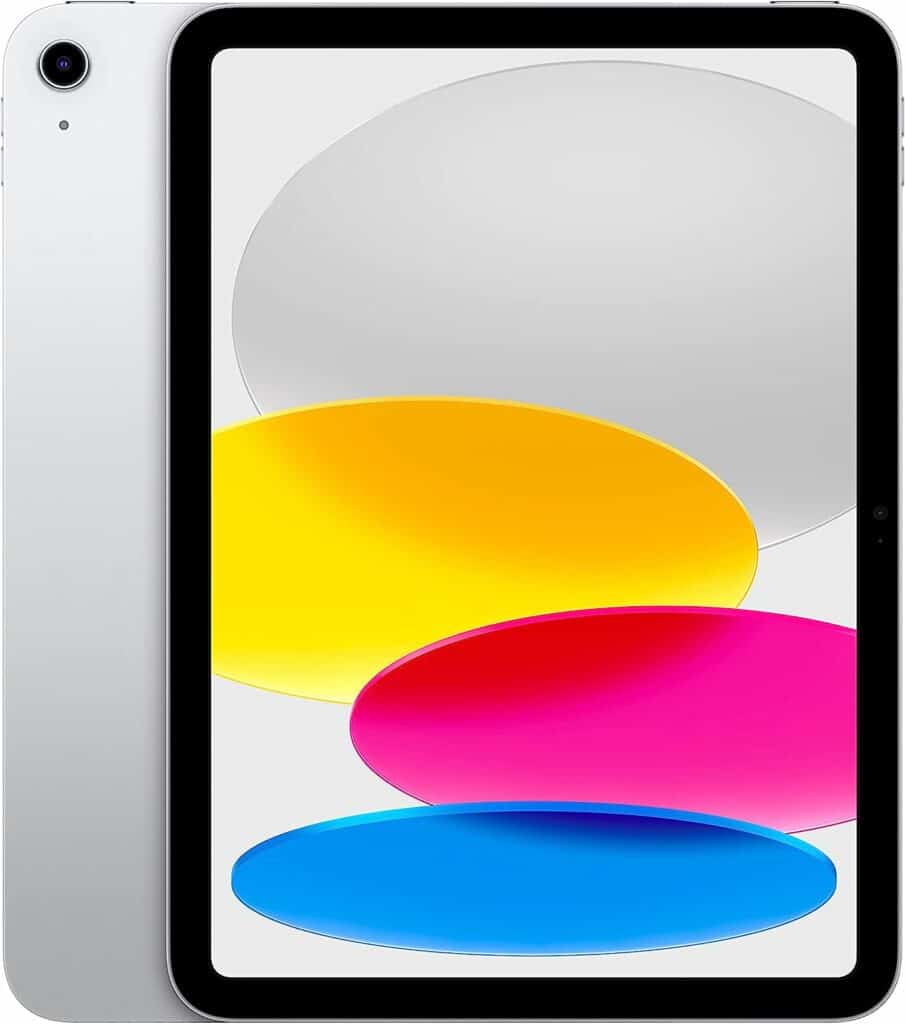This post may contain paid links to my personal recommendations that help to support the site!
As medical students and aspiring medical school attendees, having the best tablet for medical school is an invaluable asset for learning.
Knowing the options available can be overwhelming, to say the least, but we’ve done the research to provide you with five of the best tablets for medical students and medical school in 2023.
In this blog post, we’ll cover each of these amazing medical school tablets in greater detail. Each of these tablets offers a unique set of key features, technical specifications, and our take on what makes them stand out from the rest.
Read on to view our full list of them below!
What is The Best Tablet for Medical Students?
1. Apple iPad Pro (2023)

Overview:
First, we have the Apple iPad Pro (2023), the latest in the iPad lineup.
It features one of the most powerful silicon chips available by Apple, the M2 chipset, as well as an advanced high-refresh-rate ProMotion display and speakers for superior audio and video quality.
The high-end pro features of the iPad Pro make for a great reliable study assistant and companion for medical students.
Key Features:
- ProMotion (120Hz refresh rate display)
- M2 chip with powerful 8-core CPU/GPU
- Supports Apple Pencil (2nd-generation)
- 4K video recording
- Supports WiFi 6E
- Large all-day battery life
Technical Specifications:
- Display: 11″ or 12.9″ Liquid Retina Display with ProMotion
- Processor: M2 Chip (8 cores CPU, 10-core GPU)
- RAM: 6GB or 8GB
- 16‑core Neural Engine
My Take:
The Apple iPad is one of the best tablets available for medical students. It has a large display, which can be helpful for viewing lectures during your intense studying sessions.
The M2 chip ensures smooth multitasking, which helps a lot when you’re trying to take notes while you view online lectures.
Additionally, Apple Pencil (2nd-generation) support makes taking notes easier than ever before! This makes a good companion for in-person lecture note-taking.
The higher cost is well worth it for the processing power and productivity boost.
2. Samsung Galazy Tab S8+

Overview:
Next up, we have the Samsung Galaxy Tab S8+, which uses the Google Android operating system.
With its slim and compact design, this tablet is perfect for medical students who want to carry the device around with them without worrying about bulk or extra weight.
The 12.4-inch Super AMOLED display produces some of the best visuals you’ll find on a tablet, all while providing you with a smooth refresh display.
It also boasts one of the longest-lasting batteries available on a tablet, at 10,090mAh, making it ideal for all-day use while you’re going about your lectures in college.
Key Features:
- Compact and slim design
- 12.4” Super AMOLED display with 120Hz refresh rate
- Has microSDXC card external slot
- Supports S Pen
- Uses a high-performance Qualcomm SM8450 Snapdragon 8 Gen 1 chipset
- Long battery life
Technical Specifications:
- Display: 12.4″ Super AMOLED Display with 120Hz Refresh Rate
- Processor: Qualcomm Snapdragon 8 Gen 1 Chipset
- RAM: 6GB or 8GB
- Storage: 128GB, 256GB, or 512GB + expandable storage space via microSDXC card slot
- Connectivity: Wifi 6E, Bluetooth 5.2
My Take:
The Samsung Galaxy Tab S8+ is a great Android tablet for medical students who don’t need ultra-high specs and power.
The slim design makes it perfect for taking around with you without feeling too bulky. The Super AMOLED display also gives you superior visuals compared to standard tablet displays.
The S Pen support is also a great touch, as it allows you to quickly take notes and sketch diagrams for your anatomy and physiology lectures.
I really like how there’s also expandable storage space, which ensures that you’ll always have adequate storage space for storing all your files.
The long battery life makes it ideal for all-day use, ensuring that you’ll be able to stay focused in class without worrying about the battery running out halfway through.
All in all, the Tab S8+ is a great choice for medical students looking for a reliable and powerful tablet.
3. Apple iPad Mini (2021)

Overview:
The Apple iPad Mini (2021) is yet another great choice for medical students who prioritize portability.
It’s one of the most compact tablets available, making it perfect for carrying around with you when you’re on the go.
It also features an advanced A15 Bionic chip that makes multitasking and running multiple apps a breeze.
Key Features:
- Compact and lightweight design for one-handed use
- A15 Bionic chip for smooth multitasking
- Touch ID fingerprint reader
- Supports Apple Pencil (2nd-generation)
- Uses a USB-C connector
Technical Specifications:
- Display: 8.3″ 60Hz Display
- Processor: A15 Bionic Chip
- Storage: 64GB or 256GB
- Connectivity: WiFi 6
My Take:
The Apple iPad Mini is the perfect choice for medical students who need a tablet that can fit in their pocket or study bag. You’ll also be able to use it as a portable notebook you can use when doing ward rounds for your clinical attachments.
The A15 Bionic chip ensures high performance when multitasking, which is great for medical students who need to access multiple sources of information quickly.
Additionally, the Touch ID fingerprint reader and Apple Pencil (2nd-generation) support makes taking notes a breeze: perfect for lectures and quick studying sessions.
The iPad Mini is a great tool to have around college, and the USB-C connector makes it perfect for connecting to other devices or accessories quickly and easily.
4. Microsoft Surface Pro 9

Overview:
The Microsoft Surface Pro 9 is one of the most powerful 2-in-1 tablet & laptop hybrids available for medical students as well. It’s so good that some may even use it as a laptop replacement for college.
The 13-inch touchscreen is great for viewing lectures during your classes, and the included Surface Pen makes taking notes a breeze.
Key Features:
- 13″ PixelSense touchscreen display with 2880 x 1920 pixels resolution
- Runs Windows 11 Home (good for running native laptop apps)
- 11th-generation Intel i7 processor with up to 32GB RAM
- Supports surface Slim Pen 2
- Has USB-C charging
Technical Specifications:
- Display: 13″ PixelSense Touchscreen display with 2880 x 1920 pixels resolution
- Processor: Either an Intel Core i5-1235U or a Core i7-1255U processor
- RAM: Up to 32GB RAM
- Storage: 256GB storage
- Connectivity: WiFi 6 + Bluetooth 5.0, with 5G version available
My Take:
The Microsoft Surface Pro 9 is the perfect tablet for any medical student looking for both a laptop and a tablet in one. The 11th-generation Intel i7 processor and up to 32GB RAM ensures that it can easily handle any task you throw at it.
The 13-inch PixelSense touchscreen display is great for viewing lectures during your classes, and the included Surface Pen makes taking notes a breeze as well.
Finally, the USB-C charging means you won’t be running out of battery halfway through classes, and the 5G version means you’ll have fast and reliable internet access wherever you are.
Overall, the Microsoft Surface Pro 9 is ideal for medical students who want a powerful device that can handle anything they throw at it.
5. iPad (10th Generation)

Overview:
The iPad (10th Generation) is Apple’s latest budget tablet, and it’s perfect for medical students who want a device that is affordable and light.
It features an A14 Bionic chip which makes multitasking a breeze and gives you fast performance when running multiple intensive applications.
The 10.9-inch Retina display is perfect for viewing lectures in class, and the Apple Pencil (2nd-generation) support makes taking notes a breeze.
Key Features:
- Compact and lightweight design
- 10.9″ Retina display with True Tone technology
- A14 Bionic chip for smooth multitasking
- Supports Apple Pencil (1st-generation)
Technical Specifications:
- Display: 10.9″ Retina Display with True Tone technology
- Processor: A14 Bionic Chip
- Storage: 64GB or 256GB
- Connectivity: WiFi 6
My Take:
The iPad (10th Generation) is a great choice for medical students who need an affordable, powerful, and lightweight tablet. The A14 Bionic chip ensures high performance when multitasking, which is perfect for those needing to access multiple sources of information quickly.
The 10.9-inch Retina display with True Tone technology is also decent for viewing lectures in class, but the Apple Pencil (1st-generation) support makes it a bit less seamless than the 2nd-generation Apple Pencil.
I would say that this is one of the best options for students going to med school or for going on clinical rounds. It’s good for those who want a budget yet reliable option that doesn’t disappoint. The entry-level cost offering also makes it attractive.
Related Questions
Are tablets good for medical students?
Yes, tablets are great for medical students. They provide an excellent way to view lectures and take notes digitally in class, as well as access medical textbooks and reference materials.
In addition, most modern tablets offer a long battery life, making them perfect for extended study sessions or travel.
Which gadget is best for medical students?
A tablet is the best gadget for medical students. It provides a great way to view lectures and take notes digitally in class and access medical textbooks and reference materials.
The best tablet for medical school would be the M2 iPad Pro (2023). It has one of the most powerful silicon chips available, an advanced high-refresh-rate ProMotion display and supports the Apple Pencil (2nd generation), making it great for taking notes during lectures or study sessions.
For those who prefer a laptop or PC experience, the Microsoft Surface Pro 9 or a MacBook Air (M2 Chip) are good options for medical students who need a more powerful device.
For those on a budget, the iPad (10th generation), iPad Mini (2021), or Samsung Galaxy Tab S8+ are all great choices.
These tablets offer good performance and battery life while staying within a reasonable budget.
Do medical students need iPad?
An iPad is not necessary for medical students, but it can be a great tool that provides an excellent way to view lectures and take notes digitally in class.
iPads are also great for sharing notes with your friends and classmates through AirDrop.
The Apple Pencil integration with iPad is one of the best note-taking experiences in the industry, making it perfect for lectures or study sessions.
An Apple iPad air is also good if you require a light tablet that packs som performance as well.
Which tablet is used for students?
Students typically use the Apple iPad Pro (2023), Samsung Galaxy Tab S8+, and Microsoft Surface Pro 9 for higher performance. They also use the Apple iPad Mini (2021) and the iPad (10th Generation) for budget options.
Each of these tablets offers great features that make them perfect for digital learning.
What is the best iPad for medical students?
The best iPad for medical students is the Apple iPad Pro (2023). It has the best balance between performance, cost, and flexibility among all the tablet options out there.
Final Thoughts
To wrap things up, picking the right tablet for medical school can be a tough decision.
But with the information we’ve provided here, you should now better understand which are the best tablets for medical school.
Whichever tablet you choose, make sure it has enough storage and RAM to handle your needs. Finally, always make sure the battery life is decent so that you can get through lectures and study sessions without having to worry about having to recharge your device.
I hope this article has been helpful for you, thanks for reading!
